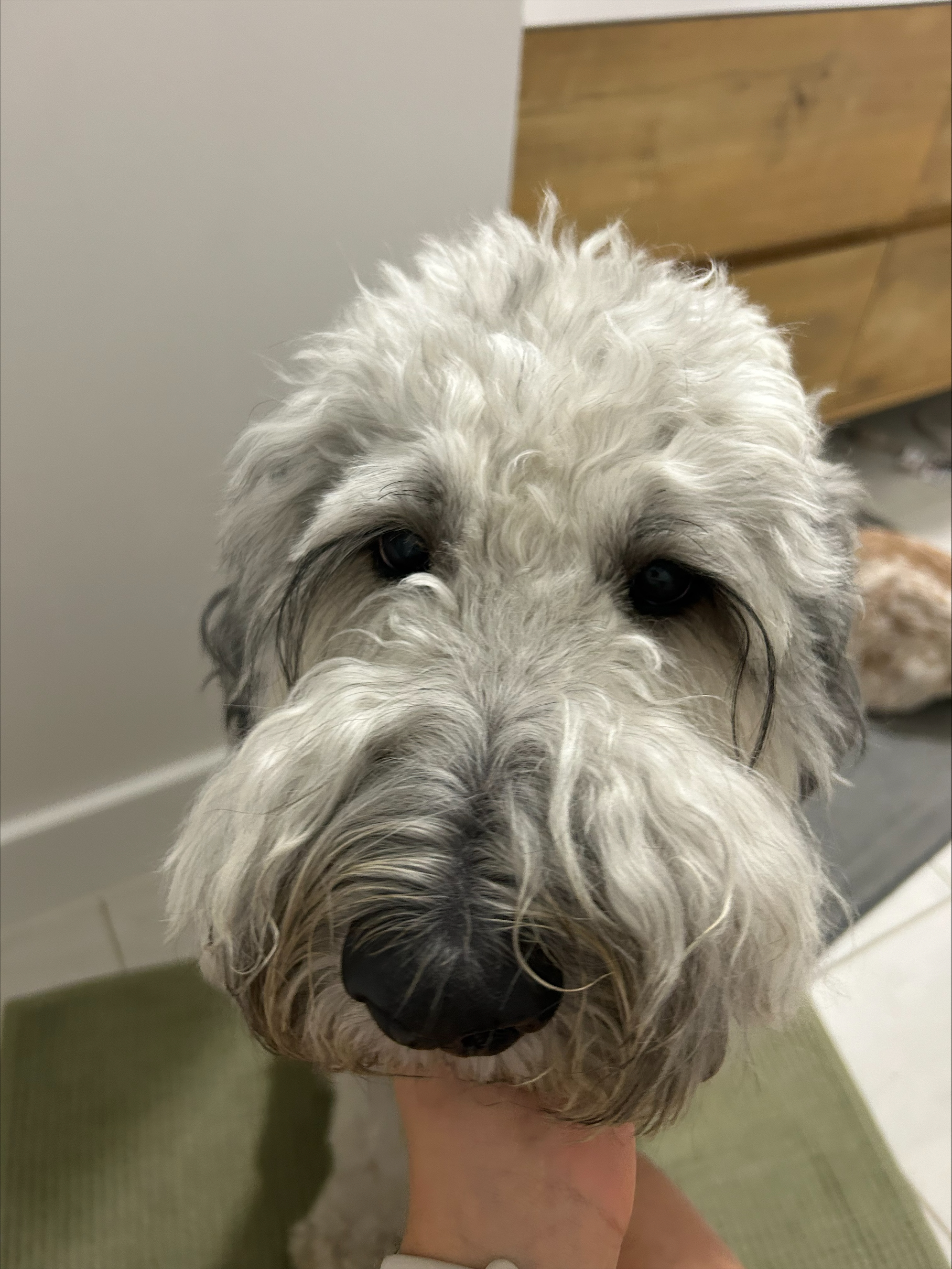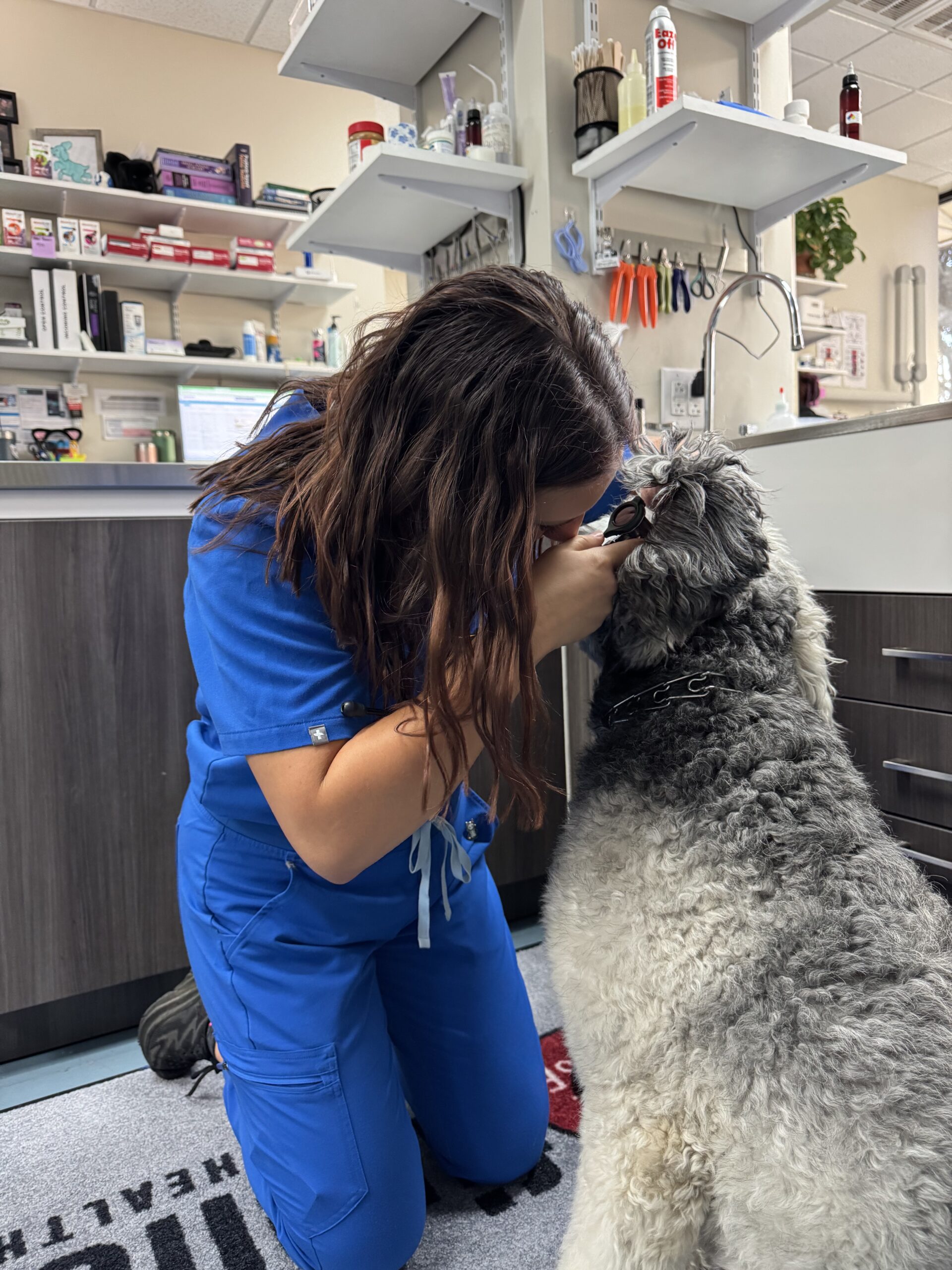5 minute read
Dr Natalie Davis’s tips for managing ear infections are: 1) Regularly clean your pet’s ears with vet-approved cleaners, 2) Keep ears dry after swimming or bathing, and 3) Consult your vet for accurate diagnosis and treatment.
Dr Natalie Davis is our newest veterinarian at Firehouse 183. She had to help her dog, Yoshi — a poodle/Pyrenees mix — heal from an ear infection this summer.
She had been smelling a “yeasty, Frito-ish” scent when playing with him. Dr Davis gave pause when Yoshi yelped during an ear rub. She looked inside and his left ear was red and filled with debris. She had discovered the smell’s source!
Ear infections in dogs and cats can cause pain and create complications if left untreated. They’re also really common.
We can help. Keep your dog healthy and comfortable with these tips from Dr Davis. And we love it when you call to ask us questions! Please know that we’re here to help when you need it.
How do I know if my pet – dog or cat – has an ear infection?
Look for:
- Head scratching or shaking. “You’ll notice this with big, floppy-eared breeds,” says Dr Davis. “And cats might dig into their ears and murmur because it feels so good.”
- Foul odor in the ears.
- Redness, swelling, discharge, or brown/waxy debris in the ears.
- Sensitivity when touched near the ears.
- Changes in behavior, like agitation, not eating well or not playing as much.
What other issues can be mistaken for ear infections in pets?
Other conditions can mimic ear infection symptoms, including seasonal allergies, ear mites in cats, foreign objects in the ear, trauma, tumors, or neurological issues.
What are common solutions for dog ear infections?
Treatment typically involves cleaning the ears to remove excess wax and debris. We’ll look at the debris under the microscope to determine what medications will best treat the infection.
Meds may include topical ear drops or ointments to combat infection and inflammation. We can also prescribe oral antibiotics or antifungal medications if the infection is severe or recurrent.
In some cases, your veterinarian may recommend oral or injectable steroids to reduce inflammation and help with pain. We may offer preventive measures to prevent future ear infections, including:
- Regular ear cleaning
- Using a drying agent after a bath or a swim
- Changing your pet’s diet
What are common solutions for cat ear infections?
We’ll prescribe the appropriate medication for the type of infection, such as antibiotics, antifungals, or anti-parasitics. These meds come in the form of ointments, eardrops, tablets or injectables.

Yoshi’s ear infection developed gradually over a few days. As soon as Dr. Davis noticed he was in pain, she brought him to Firehouse to find the right treatment. Even veterinarians rely on our hospital for their pets’ health needs!
Do I need to see a veterinarian to solve my pet’s ear infection? Are there any home remedies?
Minor ear infections might resolve on their own. Always consult your vet for accurate diagnosis and treatment. Vets can identify the cause and prescribe the right treatment.
Avoid over-the-counter cleaners or homemade solutions, as they can worsen the issue. We’ve seen some creative homespun ideas, including store-bought solutions like coconut oil or tea tree oil. We don’t recommend DIY or generic store-bought solutions. Those aren’t always safe for your pet’s specific infection.
Take precautions when it comes to your pet’s ears and their hearing. Call us. We can diagnose the infection’s cause and find the right medication for your cat or dog.
What happens if an ear infection is left untreated?
Untreated ear infections can lead to serious complications like chronic inflammation or eardrum rupture. Professional care is crucial for your pet’s health.
Can ear infections in dogs lead to serious complications?
Yes, infections can certainly lead to more serious issues. Chronic inflammation may thicken the ear canal, making future infections more likely and harder to treat.
Severe infections can damage the eardrum, resulting in hearing loss or balance issues. Additionally, infections can spread to surrounding tissues and other parts of the body, causing systemic illness.

Dr Davis has the training to diagnose her own pup. (insert smiley face emoji) The rest of us should contact the vet if we suspect an ear infection. Untreated ear infections can cause longterm damage.
How can I prevent ear infections in my pet?
Some animals are more prone to ear infections due to anatomy, allergies, or health issues. To help prevent infections, clean your dog or cat’s ears regularly with a vet-approved cleaner.
Keep ears dry after swimming or bathing to avoid bacterial or fungal growth. Address underlying conditions like allergies promptly and schedule regular vet check-ups to monitor ear health.
Is ear infection in pets seasonal?
Ear infections in dogs can result from various factors and are not solely seasonal. Common causes include bacterial or yeast overgrowth, allergies, hormonal imbalances, ear mites, foreign objects, moisture, and health conditions like hypothyroidism.
Ear infections in cats can increase in spring. Seasonal allergies to pollen and grass can lead to increased ear wax production, which can contribute to moisture in the ear. This moisture can create an environment for bacteria, yeast, and ear mites to grow, leading to ear infections.
Just as Dr Davis did for Yoshi, help your pet get relief with safe ear infection treatments. Proper care and early intervention can help heal your pet’s sore ears.
If you suspect an ear infection, call us with questions or book online any time, day or night.
We’re here for you 24/7 to ensure your pet’s health and happiness.
